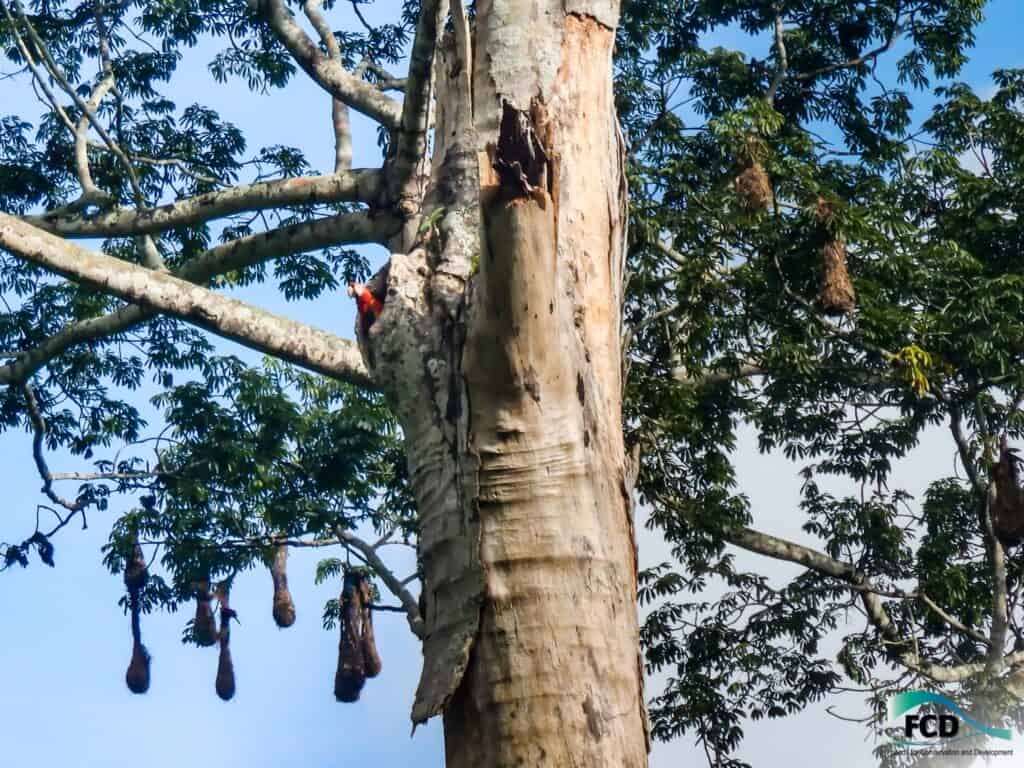With approximately 350 individual Scarlet Macaws (Ara macao cyanoptera) in Belize, all efforts are important in safeguarding the population of this Belizean subspecies. Belizean multimedia journalist Carolee Chanona explores the role of the Friends for Development and Conservation (FCD) in protecting these macaws from poaching. With a strong co-management system, NGOs like FCD play an important role in nature conservation in Belize.
Since 1984, Belizean stakeholders have worked together to protect the natural environment under an ad hoc agreement known as “co-management.”
But recently, these efforts were further formalised by the Government of Belize under a new Protected Areas Co-management Framework.
One of these local stakeholders that play a prominent role in these efforts is the Friends for Development and Conservation.
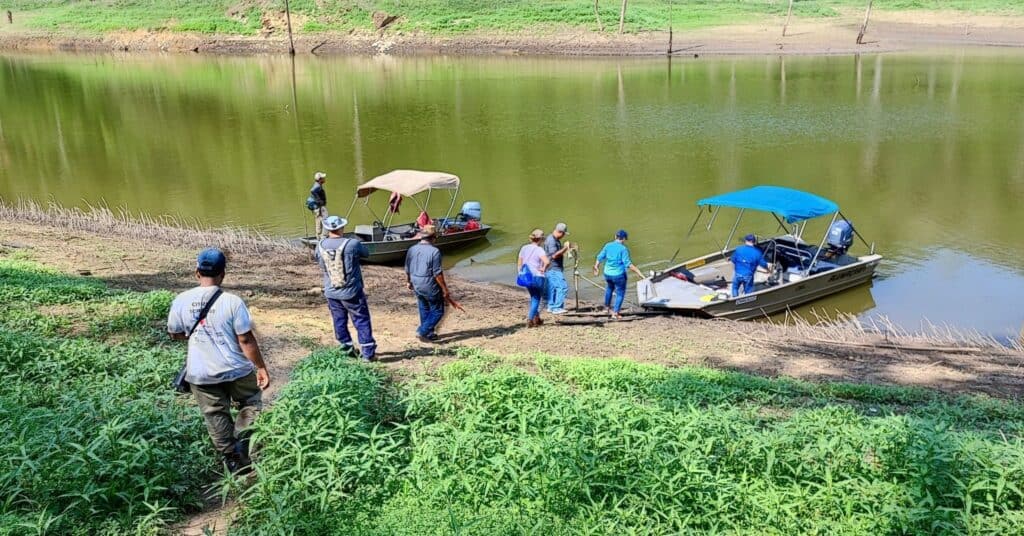
Created in 1989, the group’s website states it is a non-profit, non-governmental organisation based in the Cayo District.
Among its many activities, the FCD contributes towards the management of the Chiquibul Forest which represents 7.7 per cent of Belize’s territory.
The group is known for its meticulous guarding of Belize’s Scarlet Macaws (Ara macao cyanoptera) – a subspecies of Ara macao – against illegal poachers.
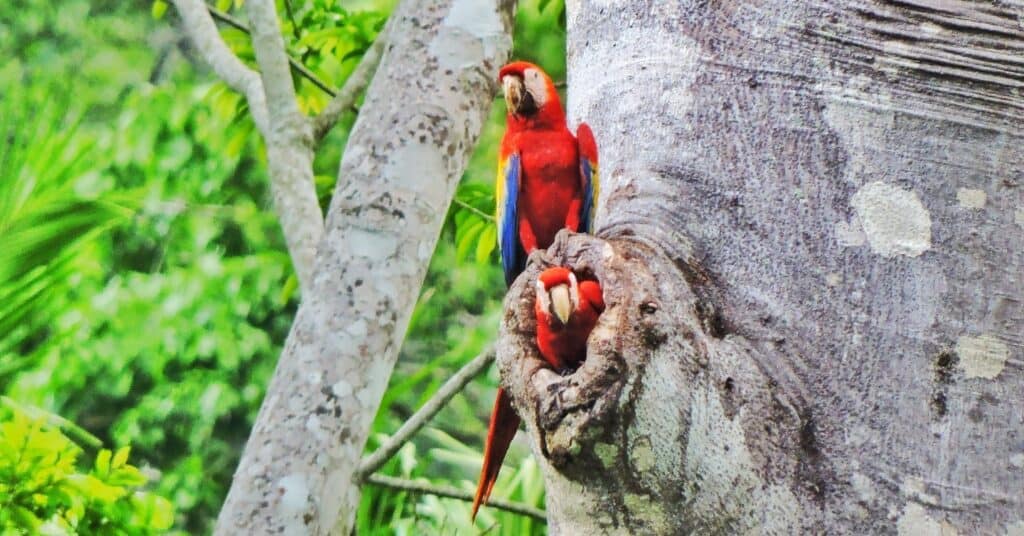
By September 2022 (the end of the Scarlet Macaw nesting season), a total of 24 macaws made it to the wild thanks to the 13 volunteers assisting in the arduous work and biomonitoring of the FCD Research Unit.
These macaws mate as monogamous pairs and every chick reared adds to their already small population.
They’re also selective and only nesting in the cavities of trees (quamwood, ceiba, pine, and others) that are within 200 yards of a riverbank.
However, this makes them vulnerable to illegal poachers.
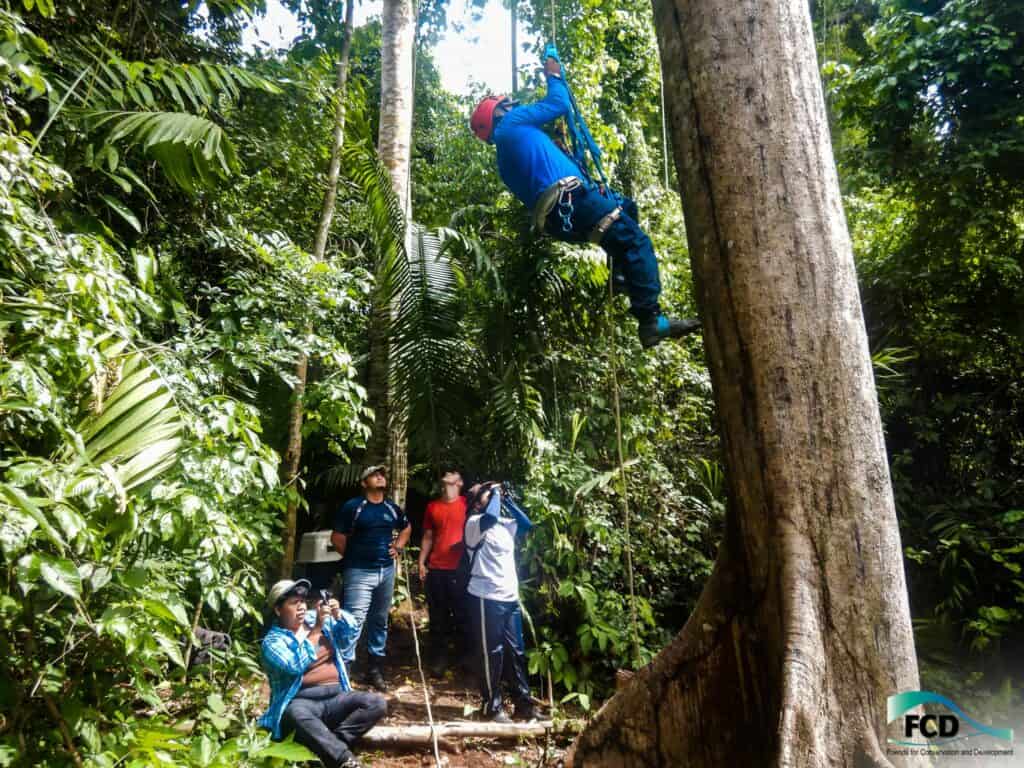
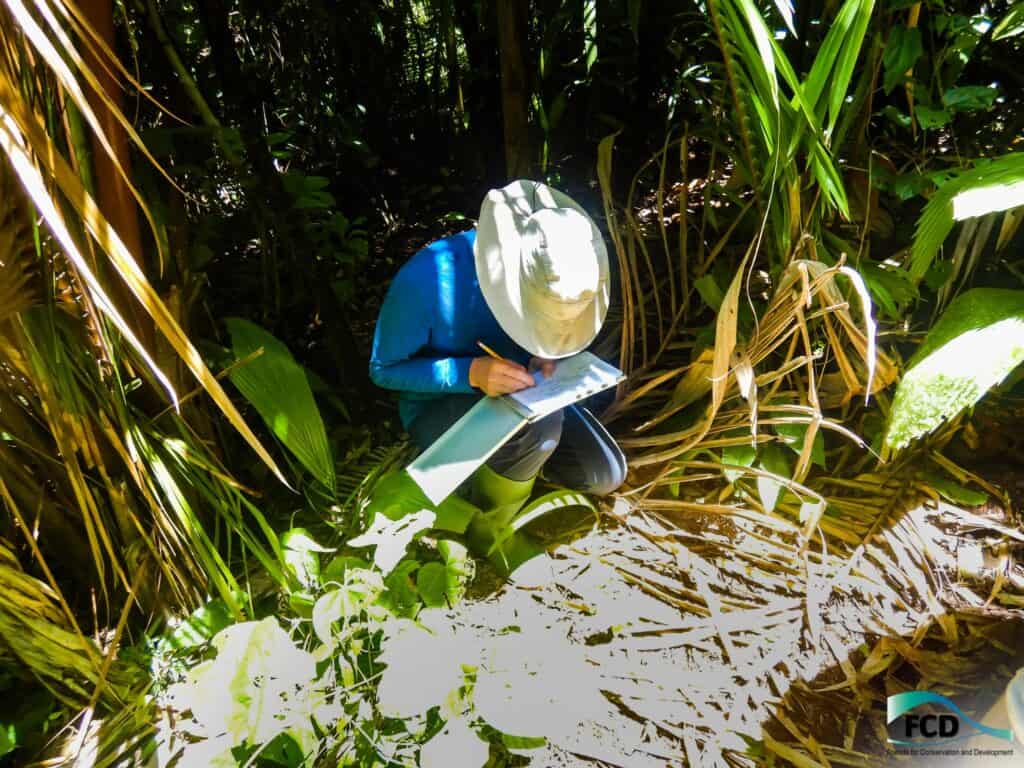
With the FCD’s combined efforts of having rangers on the ground to deter poachers and involving everyday citizens in their conservation efforts, the group’s biomonitoring efforts of these macaws are well subscribed to.
As such, the population of this macaw subspecies could well be on its way to a stable population, once again.
